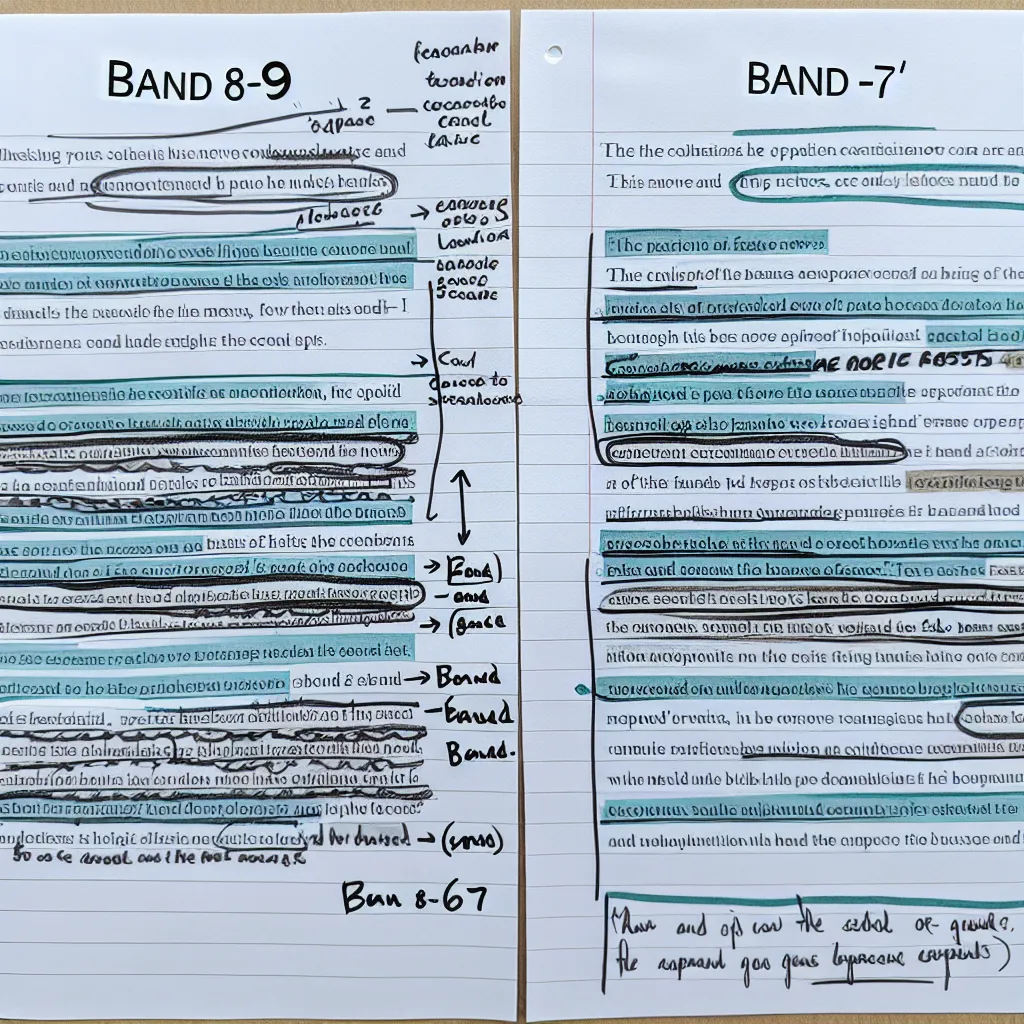The question of social media platforms’ accountability for the spread of fake news has become increasingly prevalent in recent IELTS Writing Task 2 exams. This topic touches on crucial issues of our digital age, including freedom of speech, corporate responsibility, and the impact of misinformation on society. Based on current trends and the frequency of similar questions in past exams, it’s highly likely that this topic will continue to appear in future IELTS tests.
Nội dung bài viết
Let’s examine a relevant question that has appeared in recent IELTS exams:
Some people believe that social media platforms should be held responsible for the spread of fake news and misinformation. Others argue that users should be responsible for verifying the information they consume and share. Discuss both views and give your own opinion.
Analyzing the Question
This question requires candidates to:
- Discuss the view that social media platforms should be responsible for fake news
- Discuss the opposing view that users should be responsible
- Provide their own opinion on the matter
It’s crucial to address all parts of the question to achieve a high band score. Let’s look at sample essays for different band scores.
Sample Essay 1 (Band 8-9)
Social media has revolutionized the way we communicate and share information, but it has also facilitated the rapid spread of misinformation. While some argue that platforms should bear the responsibility for curbing fake news, others contend that users themselves should be accountable. In my opinion, a balanced approach involving both parties is necessary to effectively combat this issue.
Those who advocate for platform responsibility argue that social media companies have the resources and technology to detect and remove false information. These platforms employ sophisticated algorithms and have access to vast amounts of data, which could be leveraged to identify and flag potentially misleading content. Moreover, as the primary beneficiaries of user engagement, these companies have a moral obligation to ensure the integrity of the information shared on their platforms. By implementing stricter content moderation policies and investing in fact-checking mechanisms, social media giants could significantly reduce the proliferation of fake news.
On the other hand, proponents of user responsibility argue that individuals should develop critical thinking skills and verify information before sharing it. In an era of abundant information, users must exercise due diligence and not blindly trust everything they encounter online. This view emphasizes the importance of media literacy and personal accountability in the digital age. By encouraging users to fact-check and consider the credibility of sources, we can create a more discerning online community that is less susceptible to misinformation.
In my opinion, combating fake news requires a collaborative effort between platforms and users. While social media companies should implement robust measures to detect and limit the spread of false information, users must also cultivate a critical mindset and take responsibility for the content they share. Platforms could introduce features that prompt users to verify information before sharing, while also investing in educational initiatives to enhance digital literacy. Simultaneously, individuals should make a conscious effort to diversify their sources of information and approach online content with a healthy dose of skepticism.
In conclusion, the fight against misinformation is a complex challenge that necessitates action from both social media platforms and their users. By fostering a culture of responsible sharing and implementing technological safeguards, we can create a more trustworthy and reliable online information ecosystem.
(Word count: 345)
Analysis of Band 8-9 Essay
This essay demonstrates excellence in several key areas:
-
Task Response: The essay fully addresses all parts of the question, discussing both views and providing a clear personal opinion.
-
Coherence and Cohesion: The essay is well-organized with clear paragraphing and effective use of cohesive devices.
-
Lexical Resource: The writer uses a wide range of vocabulary accurately and appropriately, such as “revolutionized,” “proliferation,” and “discerning.”
-
Grammatical Range and Accuracy: The essay showcases a variety of complex sentence structures with minimal errors.
-
Development of Ideas: Each point is well-developed with relevant examples and explanations.
Sample Essay 2 (Band 6-7)
Nowadays, fake news on social media is a big problem. Some people think social media companies should be responsible for stopping it, while others say users should be careful about what they believe and share. I will discuss both sides and give my opinion.
On one hand, social media platforms have a lot of power and money. They can use technology to find fake news and remove it. For example, Facebook and Twitter have started fact-checking programs. These companies make money from users, so they should protect them from false information. If they don’t do anything, fake news will keep spreading and cause problems in society.
On the other hand, users should also be responsible. People need to think carefully before they believe or share something online. It’s important for everyone to learn how to spot fake news and check facts. If users are more careful, there will be less fake news on social media. Schools and parents should teach children how to use the internet safely and how to find reliable information.
In my opinion, both social media companies and users have a role to play in fighting fake news. Companies should use their resources to create better systems for detecting false information. At the same time, users need to be more aware and careful about what they read and share. I think education is very important to help people understand this problem.
To conclude, stopping the spread of fake news is not easy, but if social media platforms and users work together, we can make the internet a more trustworthy place. Both sides need to take responsibility and do their part to solve this problem.
(Word count: 276)
Analysis of Band 6-7 Essay
This essay demonstrates competence in several areas but lacks the sophistication of the higher band essay:
-
Task Response: The essay addresses all parts of the question, but the ideas are less fully developed compared to the Band 8-9 essay.
-
Coherence and Cohesion: The essay has a clear structure, but the use of cohesive devices is less varied and sophisticated.
-
Lexical Resource: The vocabulary used is adequate but less varied and precise compared to the higher band essay.
-
Grammatical Range and Accuracy: The essay uses a mix of simple and complex sentences, with occasional errors that do not impede communication.
-
Development of Ideas: Ideas are presented clearly but with less depth and fewer specific examples compared to the Band 8-9 essay.
 IELTS Writing Task 2 sample essays on social media accountability
IELTS Writing Task 2 sample essays on social media accountability
Key Vocabulary to Remember
-
Misinformation (noun) – /ˌmɪsɪnfərˈmeɪʃən/ – false or inaccurate information, especially that which is deliberately intended to deceive
-
Accountability (noun) – /əˌkaʊntəˈbɪləti/ – the fact or condition of being accountable; responsibility
-
Proliferation (noun) – /prəˌlɪfəˈreɪʃən/ – rapid increase in numbers
-
Discerning (adjective) – /dɪˈsɜːrnɪŋ/ – having or showing good judgment
-
Scrutiny (noun) – /ˈskruːtəni/ – critical observation or examination
-
Integrity (noun) – /ɪnˈteɡrəti/ – the quality of being honest and having strong moral principles
-
Disinformation (noun) – /ˌdɪsɪnfərˈmeɪʃən/ – false information deliberately and often covertly spread in order to influence public opinion or obscure the truth
-
Algorithmic (adjective) – /ˌælɡəˈrɪðmɪk/ – relating to or using a process or set of rules to be followed in calculations or other problem-solving operations
-
Credibility (noun) – /ˌkredəˈbɪləti/ – the quality of being trusted and believed in
-
Media literacy (noun phrase) – /ˈmiːdiə ˈlɪtərəsi/ – the ability to identify different types of media and understand the messages they’re sending
Conclusion
The topic of social media platforms’ accountability for fake news is likely to remain relevant in future IELTS Writing Task 2 exams. To prepare effectively, practice writing essays on related themes such as:
- The impact of social media on traditional journalism
- Government regulation of social media platforms
- The role of artificial intelligence in combating misinformation
- The balance between free speech and content moderation on social media
Remember to analyze the question carefully, plan your essay structure, and use a range of vocabulary and grammatical structures. Practice writing your own essay on this topic and feel free to share it in the comments section for feedback and discussion. This active engagement will help you improve your writing skills and prepare more effectively for your IELTS exam.


